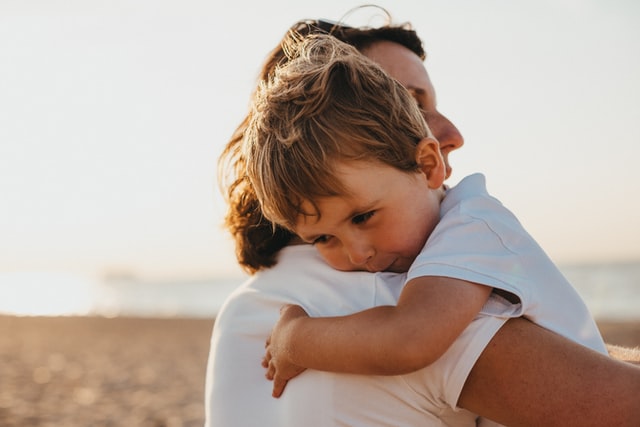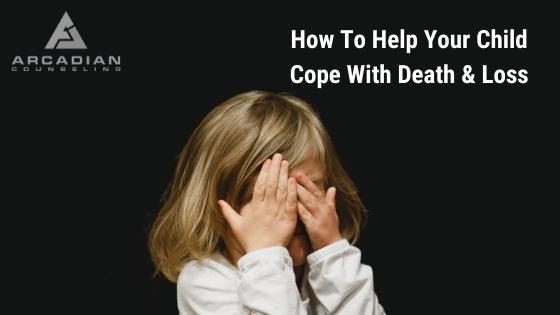As parents, we do our best to shield our children from the harsh realities of the world. But we can’t protect our children from experiencing the pain of death and loss. Learning how to help your child cope with death and loss is an invaluable parenting skill. Whether it’s the loss of a beloved pet, a childhood friend, or the loss of a family member, young children are unequipped to deal with the sometimes overwhelming feelings of grief and sadness.
5 Strategies To help Your child cope with Death & Loss
1. Share what they can handle

Learning how to help your child cope with death and loss requires learning what to share, how to share it, and when to share it.
Children have very, very big imaginations. They can easily (and often will) imagine a scenario that is far scarier than the reality. While you may think speaking to a child openly about a loved one’s illness and impending death will cause anxiety, very often not saying anything at all will create even more anxiety.
Just be sure to share facts and information that is age-appropriate. For instance, a 12-year-old may understand the concept of hospice care while a 5-year-old may not. With younger children, share the simple essentials of death and dying.
2. Use children’s books
It can be difficult finding just the right words to explain death and dying to a young child. At these times, children’s books about illness, dying and bereavement can be a tremendous help and can guide you in having developmentally appropriate conversations with young children.
A word of caution: You may want to read the book yourself first, just to make sure it’s age-appropriate to your personal values and standards.
3. Encourage their honest feelings

The worst thing we can do as parents is discourage them from sharing their feelings openly and honestly. If you want to help your child cope with death and loss you have to be able to listen to what they’re really feeling without judgment.
Loss can cause people of all ages to completely shut down emotionally. Emotional numbness is a form of denial. While it’s OK for a child to take some time and space after the initial loss, you need to help them feel their feelings about the loss. Unexpressed emotions can cause mental and physical issues in the future.
This will require patience and the ability to ask open-ended questions (questions that can’t be answered with a yes or no) and listen without judgment. Sometimes this is easier said than done, but simply telling your child, “It’s ok to feel that way, Daddy feels sad sometimes too” goes a very long way!
4. Accept their honest feelings

Accepting your child’s feelings, whatever they are, is so simple yet can be so difficult at times because our instinct is to “make them feel better” but this is not our job. Our job is to teach them how to identify and handle their emotions.
Like adults, many kids go through a gamut of emotions from anger to sadness, guilt to shame. It’s natural and OK for your child to feel any emotion they may have. Let them know this and support them at every step of the grieving process.
5. Seek help

Sometimes having a professional speak with your child is the best way to help your child cope with death and loss.
Your child (and you) may benefit from working with a well-trained therapist you like and trust. They can offer tools and coping strategies to teach both you and your child how to manage and deal with overwhelming emotions. You want to look for someone who is not only qualified, but both you and your child feel comfortable working with.
James Killian, LPC is the Principal Therapist & Owner of Arcadian Counseling in New Haven, CT where they specialize in helping over-thinkers, high achievers, and perfectionists reduce stress, increase fulfillment and enhance performance so they can move From Surviving To Thriving.


